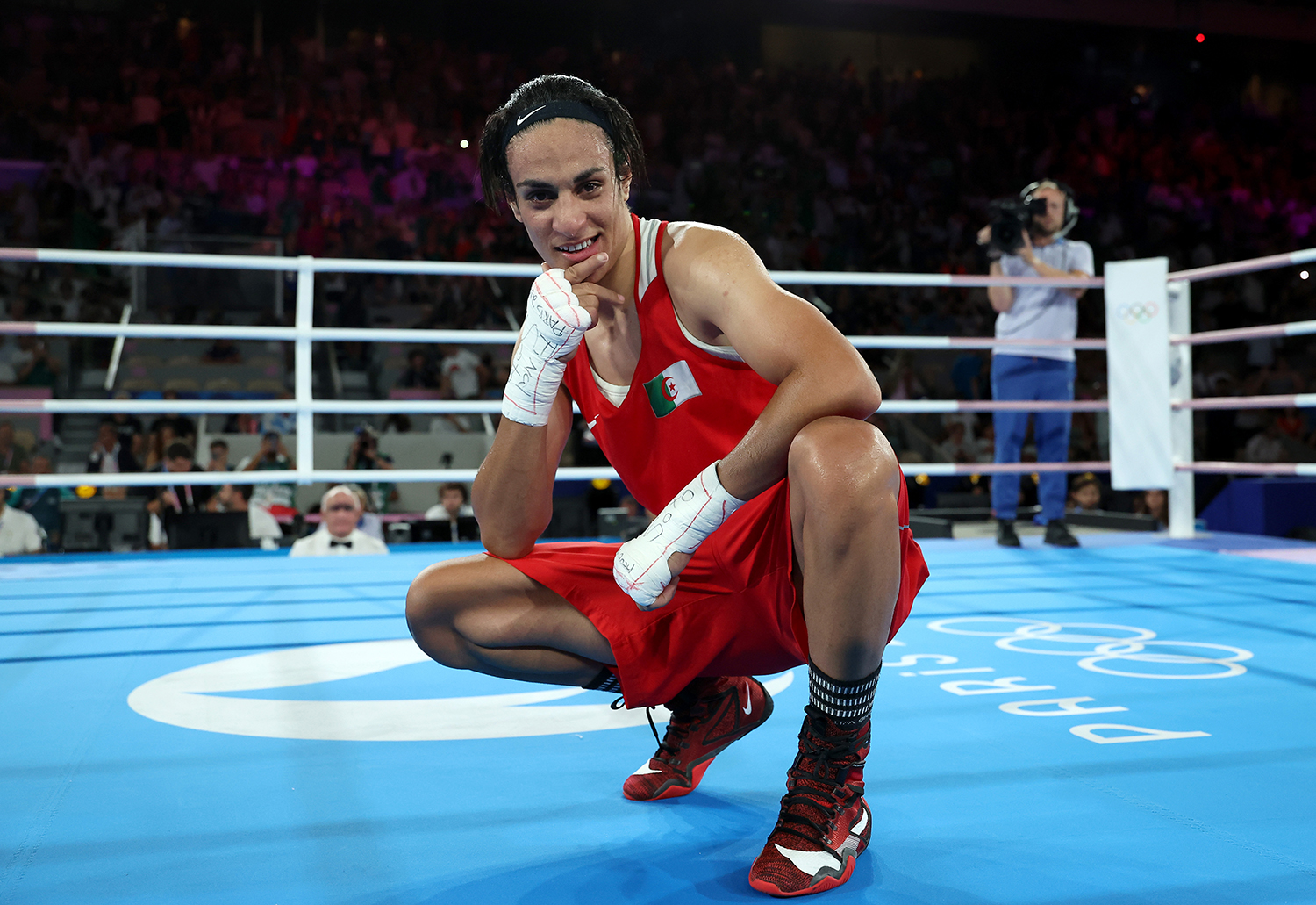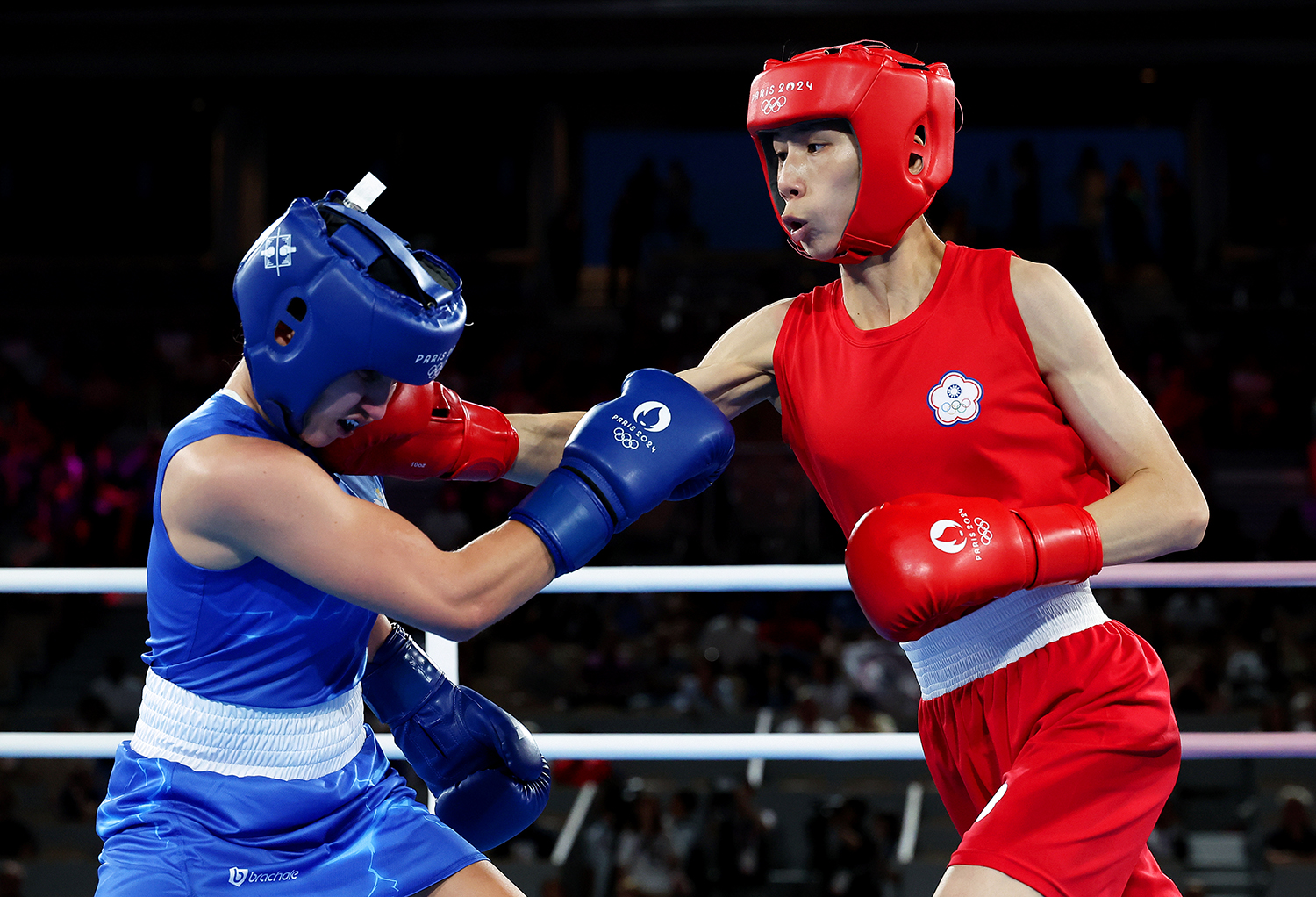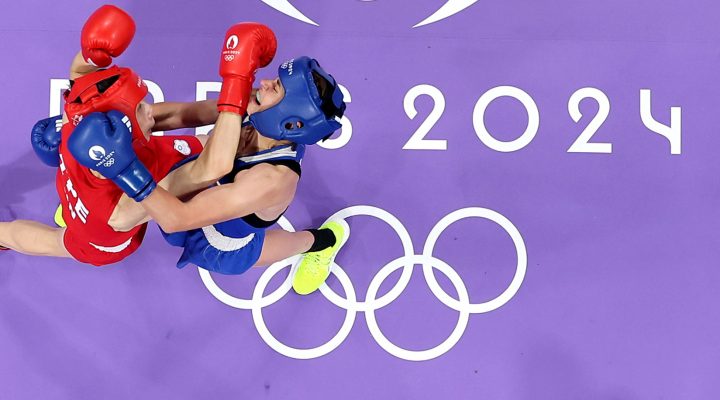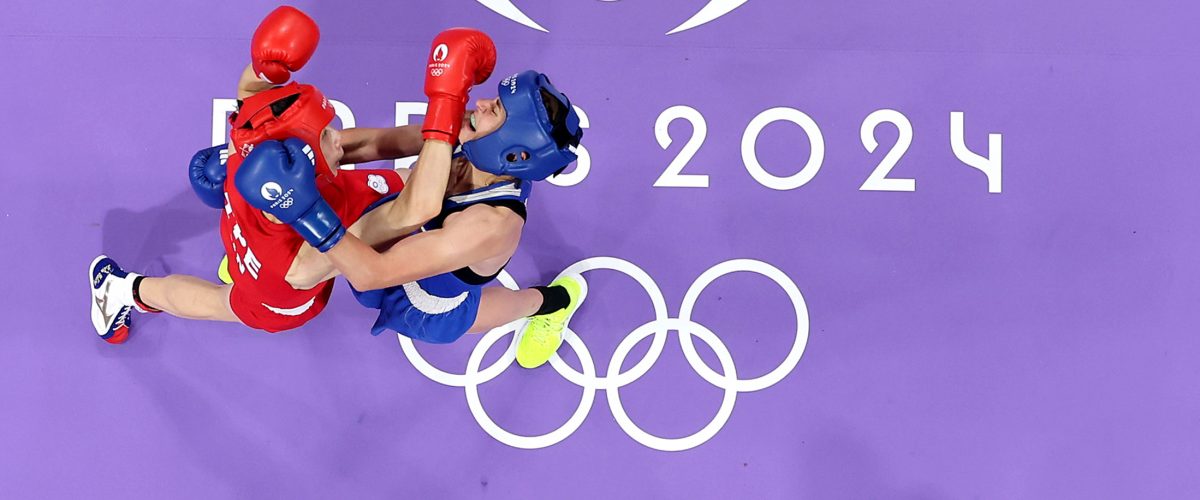Imane Khelif and Lin Yu-ting went to Paris to box. Instead, the Olympic fighters unwittingly became punching bags in a fresh round of controversy over transgender athletes in sports.
The fact that neither athlete is transgender — or, in fact, has any confirmed Differences in Sex Development — did little to quell the onslaught of misinformation across social media, conservative news platforms and even the Boston Globe after the International Boxing Association claimed both women had been disqualified from competition in 2023 after failing an unspecified gender test.
The fallout from the spread of misinformation led Khelif to file an online harassment complaint against the social media platform X after large, predominantly right-wing accounts shared misleading posts that were seen more than 100 million times.
The allegations against the athletes should have been easily dismissible — the IBA was permanently stripped of its Olympic credentials in 2019 after what the Associated Press characterized as a decades-long history of “judging scandals, bizarre leadership decisions and innumerable financial misdeeds” and, accordingly, has no governing authority over the Olympic matches.
Additionally, the organization offered no proof of its accusations or specified what testing the athletes had undergone. IBA President Umar Kremlev said high testosterone levels led to their disqualification while the IBA told Reuters last week that “a sex chromosome test ruled both of them ineligible.”
Meanwhile, the Paris 2024 Boxing Unit, tasked with overseeing Olympic Boxing in lieu of the discredited IBA, and the International Olympic Committee released a joint statement confirming that all competing boxers “met eligibility and entry regulations, as well as all applicable medical regulations set by the Paris 2024 Boxing Unit.” The statement also said eligibility rules should not be changed during a competition and that any rule alterations “must follow appropriate processes and should be based on scientific evidence.”
“It horrified me to watch the female athletes take unrelenting verbal abuse because humanity as a whole wants sex and gender to be simple,” said Jesf Benedict, an intersex content creator who co-hosts The Original Intersex Connect Live, an interactive livestream broadcast.

Imane Khelif of Team Algeria poses for a photo after winning the gold medal following the Boxing Women’s 66kg Final match against Liu Yang of Team China on day 14 of the Olympic Games Paris 2024 at Roland Garros on August 09, 2024, in Paris, France. (Photo by Richard Pelham/Getty Images)
Sharing misinformation
We’re more likely to share information when it frightens us, says the MIT Press.
Although insight exists as to why people share misinformation, we know less about how it shapes belief systems. In his doctoral work at Tufts University, Nicholas Rabb noted multiple factors at play while misinformation is being spread makes “reasoning about its complex dynamics difficult.” In other words, we don’t yet have good data about how misinformation drives public opinion.
What we do know is that most Americans are against trans athletes playing on teams that match their current gender. A 2023 Gallup poll found a 7 point leap (62% in 2021 to 69%) in Americans who say transgender athletes must compete on teams that match the gender they were assigned at birth, with fewer Americans (26% vs. 34% in 2021) supporting transgender athletes participating on teams that correspond with their gender identity.
Many who expressed opposition over the potential for trans or intersex athletes at the Paris Games cited safety — Khelif’s opponent, Italy’s Angela Carini, quit the match after just 46 seconds saying she’d never been hit so hard — and a concern for the integrity of women’s sports across the board.

Yu Ting Lin of Team Chinese Taipei punches Julia Szeremeta of Team Poland during the Boxing Women’s 57kg Final match on day 15 of the Olympic Games Paris 2024 at Roland Garros on August 10, 2024 in Paris, France. (Photo by Richard Pelham/Getty Images)
A misidentified threat
Yet research shows trans athletes do not inherently pose additional risk and anti-trans gatekeeping causes harm not only to the athletes caught in the crosshairs but also to the broader structures of women’s sports that the policies allegedly protect.
“Gender markers alone cannot determine sex.”
Perhaps the biggest misconception about trans participation in sports is the significance of the data obtained in gender testing. Gender markers alone cannot determine sex, which is the result of a complex interplay of chromosomes, genes, hormones, and sex characteristics. The role of testosterone is particularly overestimated.
“The idea that a testosterone test is some kind of magic bullet is actually not true,” IOC spokesman Mark Adams told AP. For example, Caster Semenya, the South African two-time gold medal track and field champion, learned in 2009 that she has both a Y chromosome and naturally high testosterone.
Despite producing excess testosterone, Caster said in a guest essay in The New York Times last year that she has “never been able to even approach an elite male runner’s time. Likewise, there are plenty of men with typical male testosterone levels who can only dream of beating a female athlete with typical female levels.”
Women also can have higher-than-typical testosterone levels for reasons such as Polycystic ovary syndrome and a host of other reasons unrelated to gender identity.
Similarly, chromosomal testing is not definitive. During the Summer Games in 1996, the IOC did chromosomal testing on all female athletes and eight were found to have a Y chromosome. Seven of the eight women had androgen insensitivity and the eighth had an enzyme imbalance. All were certified as female and allowed to compete.
If — and that’s a big qualifier — Khelif and Yu-ting did not pass chromosomal testing, it is likely their situations were similar to those female athletes at the 1996 Games. The IOC abandoned across-the-board chromosomal testing on female athletes due to the high cost, the potential for inaccuracy and the harm to the athletes who did not know about their chromosomal irregularity until right before their events.
A sudden interest in women’s sports
But it isn’t just elite athletes on the Olympic stage who are impacted by invasive scrutiny.
“White, conservative, hetero‐patriarchal organizations have developed a sudden interest in women’s sports” nonbinary athlete Ali Durham Greey wrote in a 2023 article in the Canadian Review of Sociology. The fervor is “reactionary response to the growing visibility and activism of trans and nonbinary people,” and the perceived threat to patriarchal systems, Greey said.
“White, conservative, hetero‐patriarchal organizations have developed a sudden interest in women’s sports.”
What happened in Paris plays out in microcosm in schools across the county, with potentially devastating results. Jennifer Pickens, an intersex woman who learned she had a Y chromosome as a teenager, described the role of sports in her younger days.
Today, Pickens is an audio book narrator, but as a “young teenager who had trouble making friends, sports were a big part of my life, and gave me so many good things,” she said. “If I had been forced to undergo sex testing and eliminated … I can’t even imagine how that would have affected me.”
Female athletes have been subjected to humiliating gender verification examinations since women’s sports became popularized in the early 20th century, according to a 2024 review of scientific literature by the Canadian Centre for Ethics in Sport. “Those whose athletic ability was on par with their male counterparts, or whose physique was too manly, were disqualified from competition as deviants of the gender order,” the report said.
In today’s climate, the scrutiny is amped up as trans people have become more visible and the political climate is more polarized. And female athletes are paying the price.
According the CCES review, sociocultural factors like discrimination and sexism in the form of differences in rules and resources impact athletic performance far more than testosterone levels.
“Excluding women who are trans hurts all women,” according to the ACLU. “It invites gender policing that could subject any woman to invasive tests or accusations of being ‘too masculine’ or ‘too good’ at their sport to be a ‘real’ woman.” This attitude perpetuates the idea that women are “weak and in need of protecting,” the organization says.
Angela Carini did not need protecting. She later apologized to Khelif for her initial reaction to their match and said she was “sad” for what Khleif was going through and if they met again, Carini would “embrace her.”
It’s Imane Khelif, now, who is left in need of another kind of protection: from the courts, for jabs and gut punches she never should have received.
Cynthia Vacca Davis serves as director of the journalism program at Christopher Newport University. She is a longtime journalist, writing about faith and reporting community news for several outlets in the Hampton Roads area. She’s the author of Intersexion: A Story of Faith, Identity, and Authenticity from Lake Drive Books. Learn more at cynthiavaccadavis.com or on Instagram @cynthia_vacca_davis.
Related articles:
Two things can be true at the same time | Opinion by Mark Wingfield
Here’s a better way to talk about Lia Thomas and transgender athletes | Analysis by Rick Pidcock


